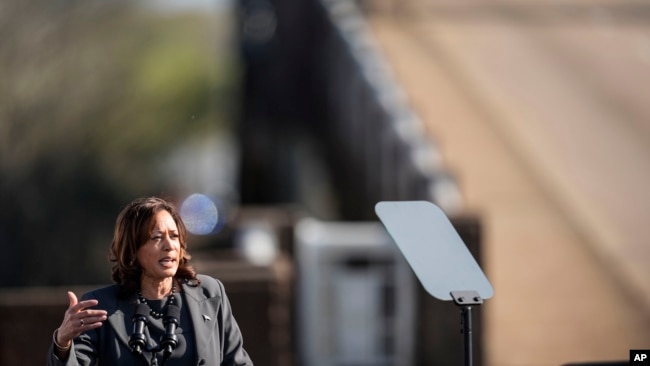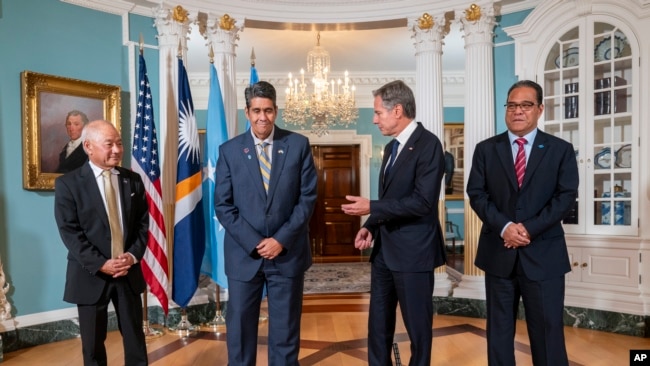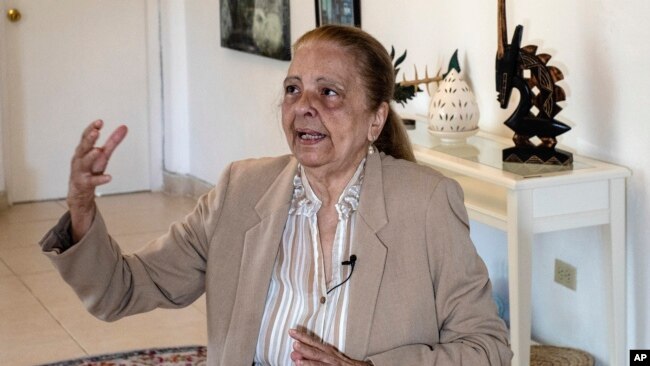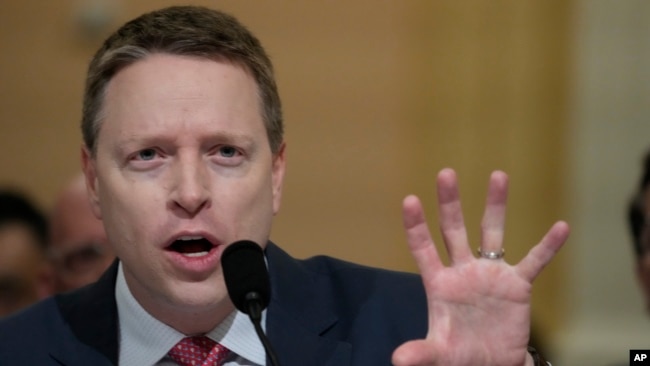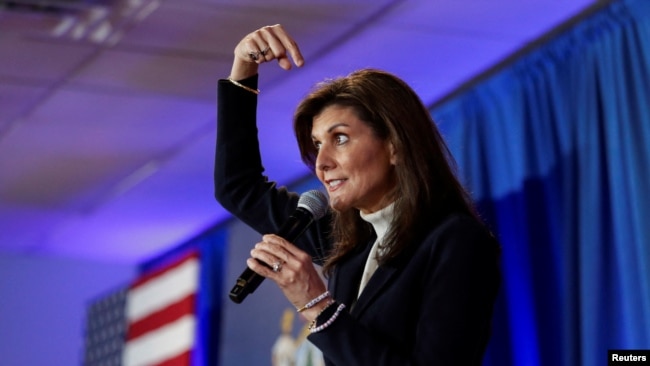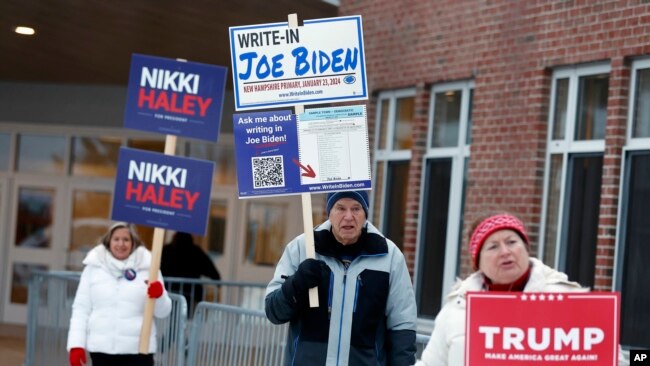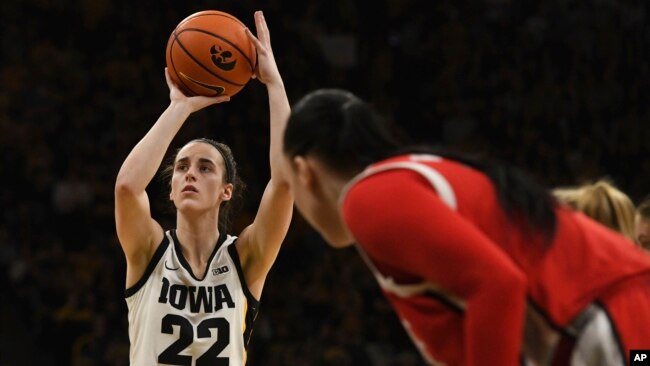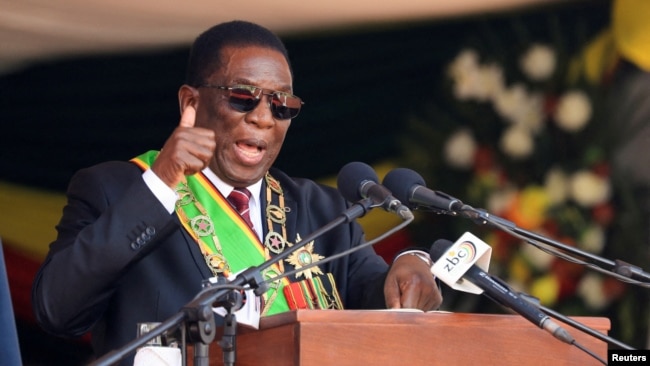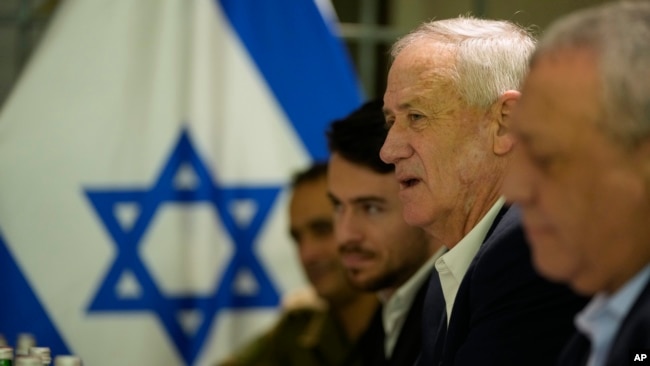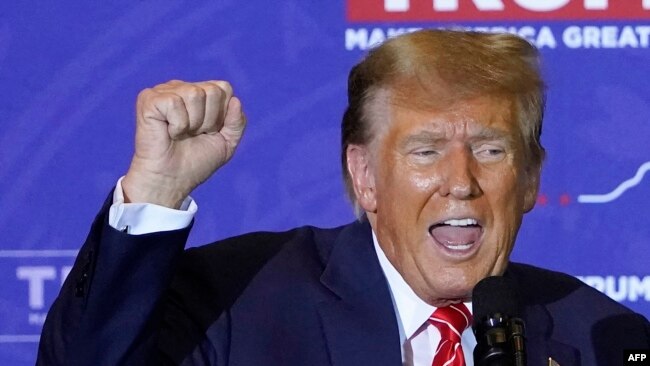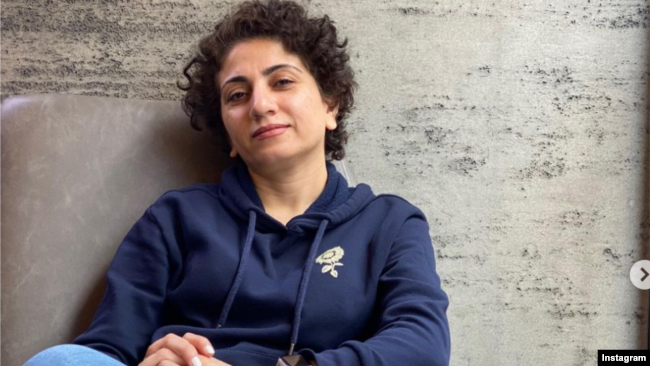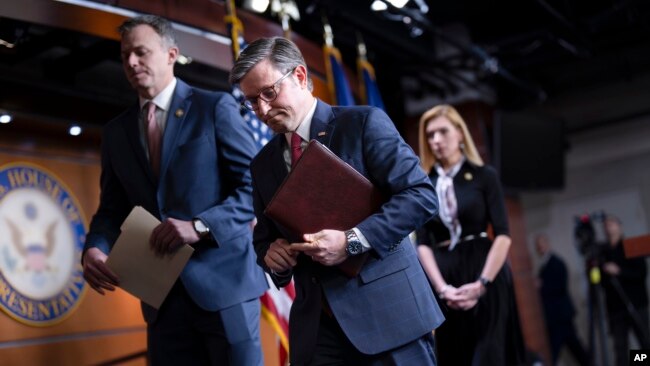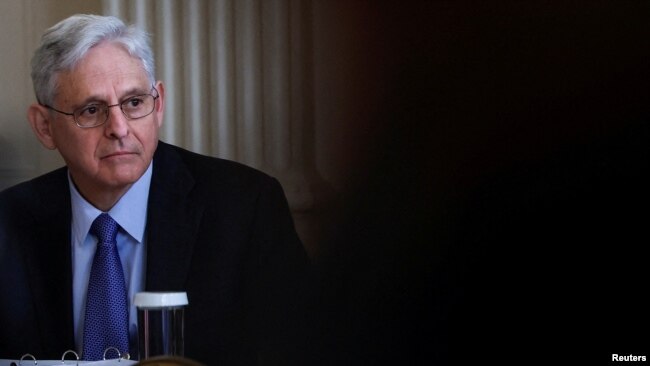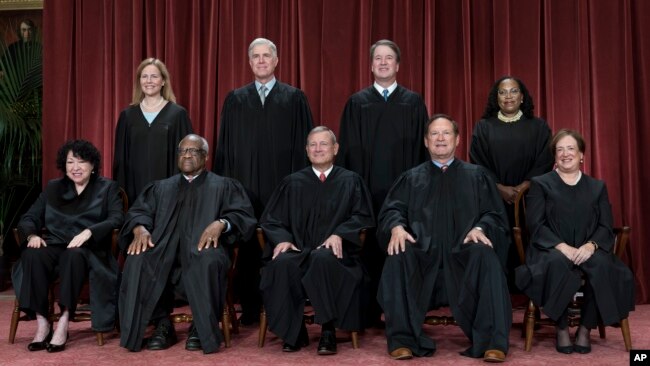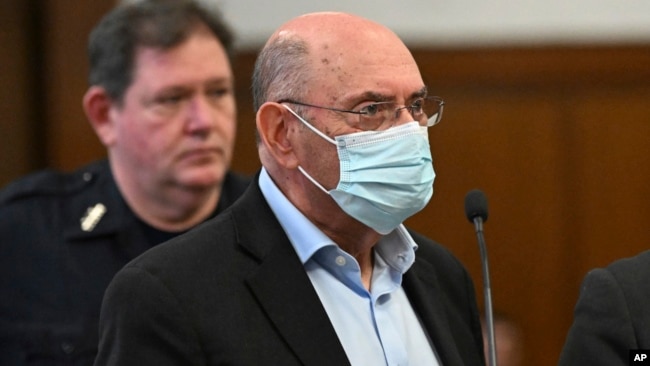AP 인터뷰입니다. 추방당한 예술가 아이 웨이웨이가 베이징 올림픽에 참가합니다.
The AP Interview: Exiled Artist Ai Weiwei on Beijing Games
페이지 정보
작성자 Associated Press 작성일 22-01-18 04:37 댓글 0본문
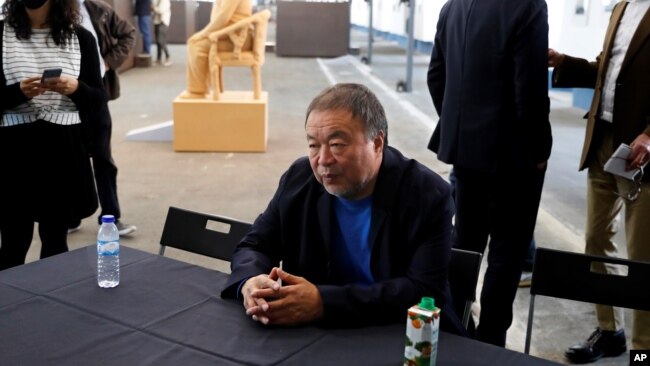
반체제 중국인 예술가 아이 웨이웨이가 2021년 6월 3일 목요일 리스본에서 열린 그의 새로운 전시회 "랩쳐"의 언론 시사회에서 기자회견 끝에 있는 테이블에 앉아 있습니다.
Dissident Chinese artist Ai Weiwei sits at a table at the end of a news conference during a press preview of his new exhibition "Rapture" in Lisbon, Thursday, June 3, 2021.
아이웨이웨이는 중국의 가장 유명한 예술가 중 한 명이고, 많은 사람들은 그를 세계에서 가장 위대한 살아있는 예술가 중 한 명으로 간주합니다. 스위스 건축회사 에르조그 드 뫼롱과 함께 일하면서, 그는 2008년 베이징 하계 올림픽의 중심축인 새 둥지 경기장을 디자인하는 것을 도왔습니다.
Ai Weiwei is one of China’s most famous artists, and many regard him as one of the world’s greatest living ones. Working with the Swiss architectural firm Herzog & de Meuron, he helped design the Bird’s Nest Stadium, the centerpiece of Beijing’s 2008 Summer Olympics.
구부러진 강철 빔의 짜임새로 즉시 알아볼 수 있는 북경의 경기장은 2월 4일 베이징 동계 올림픽 개막식도 개최할 예정입니다.
The stadium in northern Beijing, instantly recognizable for its weave of curving steel beams, will also host the opening ceremony for Beijing’s Winter Olympics on Feb. 4.
설계 단계에서, Ai는 경기장의 격자 형태와 올림픽의 존재가 중국의 새로운 개방을 상징하기를 희망했습니다. 그는 실망했습니다. 그는 경기장과 2008년 올림픽을 중국이 세계에 보여준 "가짜 미소"라고 반복해서 묘사했습니다.
In the design phase, Ai hoped the stadium’s latticework form and the presence of the Olympics would symbolize China’s new openness. He was disappointed. He has repeatedly described the stadium and the 2008 Olympics as a “fake smile” that China presented to the world.
아이 씨는 동계 올림픽이 더 많은 것을 제공할 것으로 기대하고 있습니다.
Ai expects the Winter Games to offer more of the same.
그의 명성이 디자인 직업을 갖기 전부터, Ai는 중국 공산당의 끊임없는 비평가였습니다. 그는 2011년 불특정 범죄로 중국에서 투옥되었으며, 현재 포르투갈에서 망명 생활을 하는 거침없는 반체제 인사입니다. 그는 또한 독일과 영국에서 망명 생활을 했습니다. 그는 여전히 그곳에서 스튜디오를 운영하고 있습니다.
Even before his fame landed him the design job, Ai had been an unrelenting critic of the Chinese Communist Party. He was jailed in 2011 in China for unspecified crimes and is now an outspoken dissident who lives in exile in Portugal. He has also lived in exile in Germany — he still maintains a studio there — and in Britain.
조각에서 건축에 이르기까지 사진, 비디오, 글자에 이르기까지 그의 예술은 거의 항상 도발적이며, 그는 검열과 조국의 시민 자유 부재에 대해 신랄합니다.
His art — ranging from sculpture to architecture to photography, video and the written word — is almost always provocative, and he’s scathing about censorship and the absence of civil liberties in his native country.
그의 회고록 '1000년의 희로애락'은 지난해 출간됐으며, 아이웨이웨이가 태어난 해인 1957년 국내 유배된 유명 시인 아버지 아이칭(愛淸)의 회고록과 생애가 겹치는 과정을 상세히 담고 있습니다.
His memoir — “1000 Years of Joys and Sorrows” — was published last year and details the overlap of his life and career with that of his father Ai Qing, a famous poet who was sent into internal exile in 1957, the year Ai Weiwei was born.
아이씨는 회고록에서 "제가 태어난 해에 마오쩌둥은 정부를 비판했던 "우파" 지식인들을 숙청하기 위해 고안된 반우파 운동이라는 정치적 폭풍을 일으켰습니다. 아버지를 집어삼킨 소용돌이는 제 인생도 집어삼켰고, 제가 오늘까지 지니고 있는 흔적을 남겼습니다."
Ai writes in his memoir: “The year I was born, Mao Zedong unleashed a political storm — the Anti-Rightist Campaign, designed to purge “rightist” intellectuals who had criticized the government. The whirlpool that swallowed up my father upended my life too, leaving a mark on me that I carry to this day.”
그는 아버지의 말을 인용합니다: "백성의 목소리를 억압하는 것은 가장 잔인한 형태의 폭력입니다."
He quotes his father: “To suppress the voices of the people is the cruelest form of violence.”
Ai는 AP 통신의 이메일로 질문 목록에 답했습니다. 그는 중국이 2008년 이후 어떻게 변했는지 설명하기 위해 새 둥지에 대한 그의 좌절된 희망을 사용했습니다.
Ai responded to a list of questions by email from the Associated Press. He used his dashed hopes for the Bird’s Nest to illustrate how China has changed since 2008.
"건축가로서 제 목표는 다른 건축가들과 같았습니다, 즉 가능한 한 완벽하게 설계하는 것이었습니다."라고 Ai는 AP에 편지를 썼습니다. "그 후에 그것이 사용된 방법은 우리의 이상과 반대되는 방향으로 갔습니다. 우리는 우리의 건축물이 자유와 개방의 상징이 되고 낙관주의와 긍정적인 힘을 나타낼 수 있기를 바랐는데, 이는 결국 그것이 홍보 도구로 사용된 것과는 매우 달랐습니다."
“As an architect my goal was the same as other architects, that is, to design it as perfectly as possible,” Ai wrote to Associated Press. “The way it was used afterwards went in the opposite direction from our ideals. We had hoped that our architecture could be a symbol of freedom and openness and represent optimism and a positive force, which was very different from how it was used as a promotional tool in the end.”
2008년 올림픽은 보통 중국의 "커밍아웃" 파티로 여겨지는데, IOC가 2001년 베이징 올림픽 개최를 승인했을 때 인권 향상에 도움이 될 수 있다고 말했습니다. 대신, Ai는 2008년 올림픽을 "저점"이라고 불렀는데, 이는 이주 노동자들이 도시에서 쫓겨나고, 작은 가게들이 문을 닫고 노점상들이 철거되었으며, 허름한 이웃들을 감추기 위해 야자수와 해변 풍경들로 칠해진 블록 길이의 광고판이 튀어나왔기 때문입니다.
The 2008 Olympics are usually seen as a “coming out” party for China, When the IOC awarded Beijing the Olympics in 2001, it said they could help improve human rights. Ai, instead, termed the 2008 Olympics a “low point” as migrant workers were forced out of the city, small shops were shuttered and street vendors removed, and blocks-long billboards popped up, painted with palm trees and beach scenes to hide shabby neighborhoods from view.
"올림픽 전체가 봉쇄된 상황에서 열렸습니다," 라고 아이 씨가 AP에 말했습니다. "일반 대중에게는 참여의 즐거움이 없었습니다. 대신 국제올림픽위원회(IOC)와 중국 정권은 경제적, 정치적 자본을 얻기 위해 함께 쇼를 벌였습니다."
“The entire Olympics took place under the situation of a blockade,” Ai told AP. “For the general public there was no joy in participation. Instead, there was a close collaboration between International Olympic Committee and the Chinese regime, who put on a show together in order to obtain economic and political capital.”
Ai는 그의 책에 TV 스크린으로 경기장 밖에서 개막식을 보고 다음과 같이 적었습니다.
Ai writes in his book that he watched the opening ceremony away from the stadium on a television screen, and jotted down the following.
"모든 것이 정치적인 차원을 가지고 있는 이 세상에서, 우리는 이제 모든 것을 정치화해서는 안 된다고 들었습니다: 이것은 단순히 역사와 사상과 가치로부터 분리된 스포츠 행사일 뿐입니다. 심지어 인간의 본성으로부터도."
“In this world where everything has a political dimension, we are now told we mustn’t politicize things: this is simply a sporting event, detached from history and ideas and values — detached from human nature, even.”
IOC와 중국은 올림픽은 정치와 분리되었다고 다시 주장합니다. 중국은 물론 정치적 목적을 염두에 두고 있습니다. IOC에게 올림픽은 수십억의 스폰서와 텔레비전 수입을 창출하는 스포츠 사업입니다.
The IOC and China again say the Olympics are divorced from politics. China, of course, has political ends in mind. For the IOC, the Olympics are a sports business that generates billions in sponsor and television income.
그의 이메일에서, Ai는 중국이 2008년 올림픽에 의해 대담해졌다고 묘사했습니다 - "더 자신감 있고 비타협적인". 그는 2008년 올림픽은 중국 정부가 메시지를 더 잘 구체화하도록 허용한 "부정적"이라고 말했습니다. 올림픽은 IOC가 제안한 방식이나 시민의 자유를 조장하는 방식으로 중국을 변화시키지 않았습니다. 대신, 중국은 올림픽을 세계 무대에서 중국이 어떻게 인식되는지를 바꾸고 떠오르는 힘을 알리기 위해 사용했습니다.
In his email, Ai described China as emboldened by the 2008 Olympics — “more confident and uncompromising.” He said the 2008 Olympics were a “negative” that allowed China’s government to better shape its message. The Olympics did not change China in ways the IOC suggested, or foster civil liberties. Instead, China used the Olympics to alter how it was perceived on the world stage and to signal its rising power.
2008년 대회는 한 달 뒤 세계 금융 위기로 이어졌고, 2012년에는 시진핑 국가주석이 부상했습니다. 시 주석은 2008년 올림픽을 책임진 원로 정치인이었지만 2022년 대회는 그의 것입니다.
The 2008 Games were followed a month later by the world financial crisis, and in 2012 by the rise of General Secretary Xi Jinping. Xi was a senior politician in charge of the 2008 Olympics, but the 2022 Games are his own.
2008년 이후 중국 정부는 통제를 더욱 강화했고 인권 상황은 더욱 악화되었습니다."라고 Ai는 AP에 말했습니다. "중국은 인권 문제에 관한 한 서방의 위선과 무반응을 보아왔기 때문에 그들은 더욱 대담해지고, 더 비양심적이며, 더 무자비해졌습니다. 2022년에 중국은 인터넷과 인권, 언론, 위-미디어를 포함한 정치 생활에 더 엄격한 제약을 가할 것입니다. 중국은 서방이 자기들 일에만 급급하다고 자신하기 때문에 중국 정부는 서방이 대회에 참가하든 말든 개의치 않습니다."
“Since 2008 the government of China has further strengthened its control and the human rights situation has further deteriorated,” Ai told AP. “China has seen the West’s hypocrisy and inaction when it comes to issues of human rights, so they have become even bolder, more unscrupulous, and more ruthless. In 2022 China will impose more stringent constraints to the Internet and political life, including human rights, the press, and We-media. The CCP does not care if the West participates in the Games or not because China is confident that the West is busy enough with their own affairs.”
Ai는 2022년 동계 올림픽과 대유행을 중국의 권위주의 정부에게 행운의 시기라고 특징지었습니다. 이 전염병은 올림픽 기간 동안 기자들의 이동을 제한할 것이며, 또한 오웰 주의 통제력을 보여줄 것입니다.
Ai characterized the 2022 Winter Olympics and the pandemic as a case of fortunate timing for China’s authoritarian government. The pandemic will limit the movement of journalists during the Games, and it will also showcase the state’s Orwellian control.
중국은 국가 자본주의 체제 하에서, 특히 COVID 이후, 자국의 행정 통제가 유일한 효과적인 방법이라고 굳게 믿고 있습니다. 이는 권위주의에 대한 그들의 믿음을 강화합니다. 한편, 중국은 민주주의와 자유에 대한 사상을 가진 서방이 효과적인 통제를 얻기 어렵다고 생각합니다. 따라서 2022년 올림픽은 중국의 권위주의의 효과와 서구의 민주주의 체제의 좌절감을 더욱 입증할 것입니다."
“China, under the system of state capitalism and especially after COVID, firmly believes that its administrative control is the only effective method; this enhances their belief in authoritarianism. Meanwhile, China thinks that the West, with its ideas of democracy and freedom, can hardly obtain effective control. So, the 2022 Olympics will further testify to the effectiveness of authoritarianism in China and the frustration of the West’s democratic regimes.”
Ai는 IOC가 중국 시장으로부터 수익을 창출하는 데만 관심이 있는 원동력으로서 거듭 비판했습니다. IOC와 중국은 둘 다 이번 대회를 사업의 기회로 보고 있습니다. Ai는 많은 중국인들이 올림픽을 운동선수와 같은 몇몇이 가치를 끌어내기 위해 노력하는 또 다른 정치적 운동으로 볼 것을 제안했습니다.
Ai was repeatedly critical of the IOC as an enabler; interested solely in generating income from the Chinese market. The IOC and China both see the Games as a business opportunity. Ai suggested many Chinese see the Olympics as another political exercise with some — like athletes — trying to extract value.
"중국에는 당의 지도, 국영 언론, 그리고 언론에 의해 세뇌된 사람들만 있습니다"라고 아이 총리는 썼습니다. "진정한 시민사회는 없습니다. 이런 상황에서 중국인들은 올림픽이 단순히 국가 정치의 과시이기 때문에 전혀 관심이 없습니다. 국가적으로 훈련된 운동선수들은 올림픽 금메달을 개인이나 심지어 스포츠 단체에게까지 경제적 이득을 가져다 줍니다; 이러한 방식은 올림픽의 원래 생각에서 벗어난 것입니다."
“In China there is only the Party’s guidance, state-controlled media, and people who have been brainwashed by the media,” Ai wrote. “There is no real civil society. Under this circumstance, Chinese people are not interested in the Olympics at all because it is simply a display of state politics. Nationally trained athletes exchange Olympic gold medals for economic gains for individuals or even for sport organizations; this way of doing things deviates from the Olympics’ original ideas.”
아이 씨는 중국으로 돌아갈 계획이 있는지에 대한 질문을 받았습니다. 그는 의심스럽다고 했어요.
Ai was asked if the planned to go back to China. He said he was doubtful.
"현재 상황으로 볼 때, 제가 중국으로 돌아갈 수 있는 가능성은 점점 더 희박해지고 있습니다," 라고 그가 말했습니다. "제 요점은 중국의 상황이 악화되었다는 것입니다. 서구의 보이콧은 무의미하고 무의미합니다. 중국은 전혀 신경 쓰지 않습니다."
“Judging from the current situation, it is more and more unlikely for me to be able to return to China,” he said. “My main point here is that the situation in China has worsened. The West’s boycott is futile and pointless. China does not care about it at all.”
출처 : VOANews
댓글목록 0
등록된 댓글이 없습니다.


